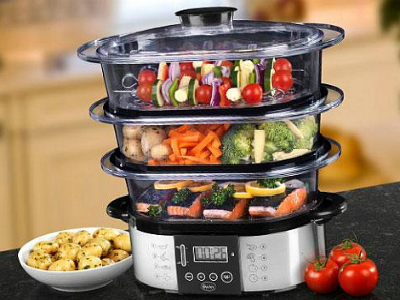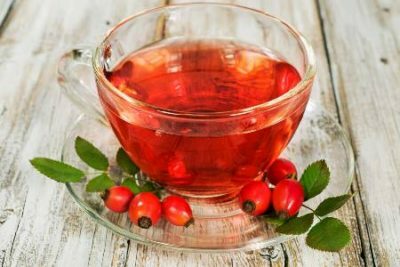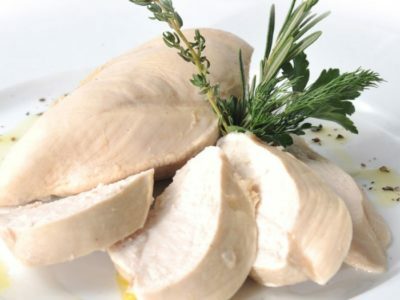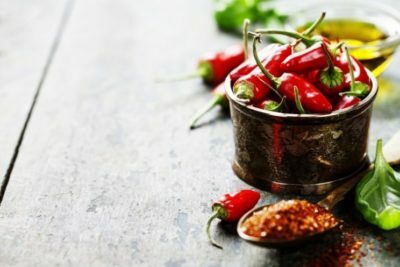1 The essence of the
problem Any surgical operation is a stressful situation for the human body, which requires a sufficiently long rehabilitation period for the complete restoration of all functions of internal organs. Operative treatment of the intestine in this regard stands on a special account, as the digestive system is disrupted, which means that metabolic processes, the delivery of necessary substances and excretion of metabolic waste are under threat. In such conditions, a strict diet is a necessary condition for rehabilitation.
Of course, the severity of the diet depends on the type of operation and the type of pathology that caused the interference. The most severe is oncology and subsequent chemotherapy. With malignant neoplasm in the body, nutritional deficiency is developed, including a shortage of fats, proteins, carbohydrates, minerals, vitamins. In the case of a prolonged course of the disease, the body becomes accustomed to such a deficit, which must be taken into account in the postoperative period. In addition, chemotherapy can not improve immune characteristics. In other cases, surgery dramatically increases the energy requirement, while there is a real need to introduce a restriction on food intake. The presence of these alternatives is an important feature of the formulation of a diet after an operation on the intestine.
During the period of postoperative recovery, the diet solves the following problems:
- normalization of intestinal functions;
- optimization of the digestion process;
- normalization of the defecation process;
- improvement in general condition and increased immunity;
- elimination of pain syndrome and irritable bowel symptoms.
2 Principal approach for the preparation of the
diet The menu after the operation on the intestine should be controlled by a physician. Depending on the complexity of the operation and the presence of complications, a regime and a diet are established, which can be adjusted taking into account the reaction of the body. There are several basic principles for the formation of a diet.

Recommended to read
- Proper nutrition after removal of appendicitis by day
- What kind of diet is recommended for constipation
- What kind of diet should be observed after poisoning
- Effective remedy for gastritis and stomach ulcer
Postoperative period by the nature of the diet is divided into 3 stages:
-
 IMPORTANT TO KNOW! Gastritis? Ulcer? To have a stomach ulcer not turned into cancer, drink a glass. ..Read the article & gt; & gt;
IMPORTANT TO KNOW! Gastritis? Ulcer? To have a stomach ulcer not turned into cancer, drink a glass. ..Read the article & gt; & gt;
- The first stage. It can last 4-5 days and consists in providing a hungry diet. In the first day after surgery, you can not eat and drink. Special formulations are administered intravenously to ensure the exchange process.
- The second stage. At this stage a very strict diet with digestible food is established. In this period, you can eat only products in a liquefied consistency at the optimum temperature. Strictly controlled diet: increased frequency( up to 6 times a day), but small portions.
- The third stage. Only after 14-15 days after the operation the gradual expansion of the menu assortment begins. As before, you can not eat heavy food, strictly limited by the range. Power is recommended to be carried out strictly on schedule, at the same time.
The second important principle: the existence of lists of prohibited and recommended products, as well as products with limited use. The menu is compiled only from these lists. At the same time, when preparing the diet, the dishes should be evenly distributed according to their energy value.
3 What requirements should be observed?
When developing a postoperative diet, you should follow these recommendations:
-
 Gastroenterologist VAZHENOV: "I beg you, if you began to worry about abdominal pain, heartburn, nausea, do not do gas at all. .."Read more & gt; & gt;
Gastroenterologist VAZHENOV: "I beg you, if you began to worry about abdominal pain, heartburn, nausea, do not do gas at all. .."Read more & gt; & gt;
- In cooking, preference is given to steam cooking, stewing, cooking, baking in the oven. Absolutely unacceptable frying.
- The food is thoroughly crushed when preparing the dish.
- A strict diet is established and controlled by a doctor in the hospital, but after discharge it must be observed to the fullest extent at home.
- Do not eat foods that lead to bloating, diarrhea, or constipation.
- Introduction of new products in a strict menu should be done gradually. Good tolerance of new dishes indicates the correct direction in the normalization of intestinal functions.
- The diet should not lead to weight loss, exhaustion of the body;should be balanced in composition and energy value. It is very important to comply with the drinking regime - at least 2.5 liters of fluid per day.

What products are strictly prohibited from taking after intestinal surgery? We recommend the following list of foods that must be excluded completely from the diet:
- sour berries and fruits( including kiwi and citrus fruits);
- white cabbage;
- all types of pickles, smoked products and marinades;
- dishes with spicy seasonings;
- canned food;
- sausages;
- ice cream;
- chocolate and sweets;
- meat, mushroom and fish broth;
- borsch and soup;
- drinks with gas and chilled;
- all types of alcoholic beverages;
- products from the dough type;
- wheat bran;
- nuts;
- tomatoes;
- mushrooms;
- asparagus;
- bean plants.
ADVICE FROM THE MAIN GASTROENTEROLOGIST
Korotov SV: "I can recommend only one remedy for the rapid treatment of Ulcer and Gastritis, which is now recommended by the Ministry of Health. .." Read testimonials & gt; & gt;
A complete ban on the use of such products is retained for at least 20 days.
4 What is recommended for nutrition?
When compiling a dietary diet in the postoperative period, it is important to choose products that do not have mechanical or chemical effects on the intestines and are easily digested, and the dishes from them do not have a thermal effect.
The list of desirable products for use is as follows:
- coarse grain;
- vegetables;
- fruit of sweet type;
- blueberry;
- cottage cheese and cheeses with reduced fat content;
- crackers;
- porridges based on rice, wheat and oats;
- flaxseed;
- potato;
- juices from freshly squeezed vegetables;
- water with little mineralization and without gas;
- black and fruit tea;
- sour-milk products.
After 20-25 days after the operation with a strict diet, you can switch to food according to diet number 4, and in it one of the most important requirements - the exclusion of fermentation and putrefaction in the intestine. At the third stage of dietary nutrition, you can prepare such dishes from the allowed products:
- Bread products are only dried, you can crackers.
- Porridges are prepared on water or lean broth from the wiped croup.
- Minced meat from low-fat meat or fish. Poultry meat is the best.
- Non-fresh meat and fish soups, and the meat should be thoroughly crushed.
- Eggs are used soft-boiled or in the form of a steam omelet.
- Butter is significantly limited.
- Sweet berries and fruits in grated or baked form, jelly, mousse, kissel.
- Vegetable broths can be eaten safely.
- From drinks are recommended: decoction of rose hips, diluted juices, tea, coffee with the permission of a doctor.

5 What to eat at different stages?
At the first stage of the diet after a complete famine, the transition to a strict one begins. On 3-4 days after the operation, dietary meals with this regime begin: 8 times a day for 250-280 g in one portion. Dishes only liquid consistency at a temperature of no more than 42-43 ° C.Consumption of table salt - no more than 1,1-1,2 g per day. You can include in the menu:
- for breakfast - tea, diluted apple compote;
- dinner - low-fat meat broth, fruit jelly, broth of wild rose;
- dinner - rice decoction, fruit jelly, tea, broth of wild rose.
At the second stage, the regime of dietary nutrition is provided 6 times a day for 370-380 g. Salt consumption is less than 4.8 g. Recommended dishes:
- breakfast - scrambled eggs, buckwheat porridge on water, tea, broth of wild rose, cream with reducedfat content;
- lunch - low-fat meat or fish broth, steamed meat souffle, compote;
- dinner - steamed fish souffle, mashed oatmeal, fruit jelly, broth of wild rose.
The third stage of the diet provides for a gradual expansion of the diet. At the core of the diet are mashed dishes on lean meat, fish or vegetable broth. In the menu you can enter the following dishes:
- breakfast - soft-boiled egg, rice porridge on the water with the addition of milk, tea with sugar, baked apple, kissel;
- dinner - soup on lean meat broth with oatmeal, meatballs, carrot puree, fruit mousse, potato-vermicelli soup, boiled meat, steam cutlets;
- dinner - boiled fish, mashed potatoes, steamed meat steak.
Diet after intestinal surgery is an obligatory and very important stage of postoperative rehabilitation of the body. When compiling a diet, especially at the initial stages, you must strictly follow the recommendations.
- 1 The essence of the problem
- 2 The principle approach for the preparation of the ration
- 3 What are the requirements to be observed?
- 4 What is recommended for nutrition?
- 5 What to eat at different stages?
Diet after an operation on the intestine is the most important stage in the recovery of the body. The menu in the postoperative period should take into account all possible adverse effects and maximally protect the person from undesirable effects. Nutrition after surgery on the intestine must be balanced, and to compile an optimal diet should listen to the recommendations of specialists. An incorrect menu can cross out all the positive results achieved during surgical treatment.
Do you have gastritis?
GALINA SAVINA: "How easy is it to cure gastritis at home for 1 month. A proven method is to write down a recipe. ..!"Read more & gt; & gt;



